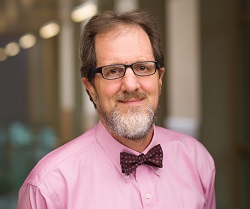
Gilbert H. Welch, MD, MPH
General internist and Professor of Medicine
Dartmouth Institute for Health Policy and Clinical Practice
Geisel School of Medicine
Professor of Public Policy, Dartmouth College
Professor of Business Administration, Amos Tuck School
8:30 a.m.
Friday, June 26, 2020
International Academy of Endodontics, Annual Meeting
The Scottsdale Princess
Scottsdale, Arizona, USA
"Epidemiologic Signatures in Cancer"
Rising cancer incidence may not reflect changes in the true occurrence of cancer but instead changes in diagnostic practice. And changes in diagnostic practice can exert a powerful influence on cancer survival statistics. Drawing on trends in a variety of cancers, Welch will explore the differences between an epidemic of a disease versus an epidemic of a diagnosis — and why those differences can make for misleading stories reported to the public.
Learning Objectives:
- Differentiate an epidemic of disease from an epidemic of diagnosis.
- Explain why rising survival statistics (e.g. 5-year survival) may not be associated with decreased mortality – but instead reflect rising incidence.
- Critique misleading health messaging in the media (“fake health news”)
Affiliations:
Brigham and Women's Hospital, Boston
About the presenter:
Dr. Welch is a general internist who has worked for the US Indian Health Service, the Department of Veterans Affairs, and Dartmouth. Currently, he is a Senior Researcher at the Center for Surgery and Public Health at Brigham & Women’s Hospital in Boston. For over three decades, he has been asking hard questions about his profession. His arguments are frequently counter-intuitive, even heretical, yet have regularly appeared in the country's most prestigious medical journals — Annals of Internal Medicine, Journal of the American Medical Association, the New England Journal of Medicine and the Journal of the National Cancer Institute — as well as in op-eds in the Los Angeles Times and the New York Times. His most recent book is LESS MEDICINE, MORE HEALTH – 7 Assumptions that Drive Too Much Medical Care.
Dr. Welch questions the assumption that more medical care is always better. His research has focused on the assumption as it relates to diagnosis: that the best strategy to keep people healthy is early diagnosis – and the earlier the better. He has delineated the side effects of this strategy: physicians test too often, treat too aggressively and tell too many people that they are sick. Much of his work has focused on overdiagnosis in cancer screening: in particular, screening for melanoma, thyroid, lung, breast and prostate cancer.